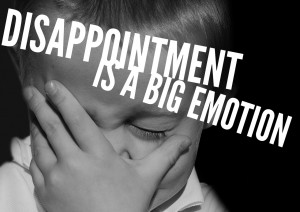 A couple of months ago, we were in the throws of buying a house. We had been back and forth from the city we wanted to buy in for about four months and it was a three-hour drive every time we wanted to look at a house – it was a big ask to drive down there most weekends and look at houses and we had pretty well reached our search limit. In fact, towards the end the kids flatly refused to get out of the car and look at yet another house so my husband and I had to tag team.
A couple of months ago, we were in the throws of buying a house. We had been back and forth from the city we wanted to buy in for about four months and it was a three-hour drive every time we wanted to look at a house – it was a big ask to drive down there most weekends and look at houses and we had pretty well reached our search limit. In fact, towards the end the kids flatly refused to get out of the car and look at yet another house so my husband and I had to tag team.
This one particular weekend, we were on our way to an auction we were pretty keen to make a bid at and we chanced by a house that had just gone on the market the day before. As soon as we walked in, we knew that was the house we wanted.
We went to the auction, made a very low bid and quickly and excitedly made an offer on ‘our new house’.
It could have ended there but… someone made a counter offer higher than we thought we could.
So at that very moment, after four months of searching for the perfect house and countless walking through other people’s bedrooms and toilets we were within reach of our dream house – only to be gazumped.
On our first walk through that house we had mentally moved in. We had decided where our furniture would go, which child would sleep in which room, what we would plant in the vegie patch – and it was all taken away. I was disappointed – hugely disappointed. That gut wrenching disappointment that you can feel in the pit of your stomach at the thought of not getting ‘our house’.
It was a Tuesday afternoon when we got the news. That same day my son came home from school and told me with a heavy heart that he had not been chosen for the school cricket team.
For the past month, he had dreamed of playing for the school team and thought about what he would do on his first match. How he would wear his cricket pads, hold the bat, run after he had smashed the ball for a 6 and he had practiced and practiced in our yard. At the try outs, he dropped a catch and that was the end of his quest. To hear he wasn’t going to be in the team was a huge disappointment for him – the same gut wrenching pain I felt over the house.
I felt helpless for him and wanted to fix it – I also wanted to fix my disappointment, but to fix disappointment would have been counter productive for both of us.
Right at this moment, I needed to ‘be’ with him.
I needed to validate it ‘sucked big time’ he didn’t get into the team. I didn’t need to offer him treats to make it better or take him out for dinner to ease the pain or tell him there is always next time. I needed to let him feel what disappointed was.
By sitting with him and hearing how bad it was, I was letting him experience the feeling of disappointment and could show him it was OK to feel this way. I talked to him about my own disappointment and we could share together.
While we were talking, he was building his own strategies and tools to bounce back from the disappointment in his head – having these strategies is a life long skill we can teach out children.
Teaching our kids how to bounce back from disappointment, sadness and negative life events – rather than ‘fix it’ for them – is one of the most valuable gifts we can give as a parent. Building resilience and strength to climb from the low moments to higher moments is invaluable.
Here are 4 ways you can help your child through disappointment
1. Allow your child to feel the disappointment.
Don’t rush in to comfort straight away or offer a food treat to make it ‘better’ – let your child feel the disappointment for a time. You want your child to be able to create their own solutions for bouncing back. Of course if they are crying inconsolably, you would give them a cuddle or soft touch on their back, but otherwise it is not a bad thing for our child to feel the disappointment.
2. Validate your child’s feelings.
Agree with your child that is feels bad not to be accepted into the cricket team or to not be chosen in the choir. Don’t use words such as ‘you just weren’t good enough this year – maybe next year’ – they doesn’t need to associate negative emotions with it. Offer words of encouragement and validation.
A little girl was crying next to me yesterday at the kids swimming carnival. I asked her what was wrong and she told me how she was in the marshalling area ready to try out for butterfly and got scared – now she was watching the race she was meant to be in and was disappointed with herself for not going in it. As she talked more and her friends gathered around, she decided it was not such a bad thing after all and managed to convince herself she did the right thing with a lot of validation from all of us.
3. Brainstorm solutions to bounce back
Talk to your child about strategies they used to overcome their disappointment – it might be at the dinner table that night when you are reflecting on the day. Don’t dwell on it or single it out as a significant event, but talk about some of the strategies they used when they are no longer emotional over the event and can think more rationally. You could combine it with other lessons they might have learnt from that day or get other members of the family to reflect on their own strategies for bouncing back from disappointment.
4. Children live in the moment
As adults, sometimes it feels like disappointment can last for hours or even days. But for children who very much live in the moment, it lasts as long as the next cute puppy walks past. So don’t dwell on it with them or over catastrophes the situation.
Feel it, validate it, talk about some strategies to bounce back then move on. They will be ready to move on pretty quickly and you need to as well. By the time my husband came home the night my son didn’t get into the cricket team, I was still disappointed for him and he was over it. He had moved on to the next thing to strive for. While not dwelling on it, do reflect back on it at some stage to ensure lessons have been learnt for the next disappointment.
Here are some further articles from trusted parent educators to help your child through disappointment;
– Helping your child through disappointment with positive parenting educator Ariadne Brill
– Helping kids manage big emotions – essential parenting ideas with parenting educator Michael Grose
– Why stickers, treats and ‘tificates don’t work (much) with parenting educator Maggie Dent
What is the biggest disappointment your child has had? Continue the chat on BombardedMum’s Facebook page here.
About the Author: Anna Partridge
Anna Partridge is a Parent Educator, School Teacher and freelance parenting writer. She is also mum to three beautiful, highly spirited children aged 9, 8 and 5. She created BombardedMum.com to share the inspirations and joys of raising the next generation and to allow mums to think about the ‘big picture’ of parenting by providing tips and advice to instil the right habits, values and beliefs in their children from the start. Anna is privileged to work alongside families to create calm and balance, help raise confident and resilient kids and support strong and connected relationships. Anna offers private parenting and family coaching at www.annapartridge.com






![‘They are not just playing’ – The Importance of Play Based Learning in Early Childhood [Guest Post]](https://annapartridge.com/wp-content/uploads/2015/03/the-imporance-of-play-150x150.jpg)
Thank you for this – I think that’s the best way to deal with disappointment at all ages. Sometimes we are so quick to try and “fix” things, when the very best thing to do is just to sit with someone, hug them and say “You know what, that truly does suck and I can sit here and be with you a while”
Thanks for the feedback @robyna. Your’e right about across all ages… right off to try it on my husband!
Great article. I currently work as a psychologist with primary aged children and resilience building is such an essential skill that fits well with your tips. We can’t shelter them but we can help then build skills to cope better.
Thanks @hollyolly – I would love to talk to you about it. Let’s connect. I will find you online and message you about my research project I am doing on resilience and would love your feedback as a psychologist. Thanks for the feedback.
What a fantastic post. Such positive strategies. Thanks for sharing.
Pleasure @kasameltingmoments!
You make a great point Anna – I hadn’t thought of it this way before. I’m sure many parents first response or ‘knee jerk reaction’ is to make it all better with a treat or distraction rather than talking about it and dealing with it. I’m not quite at this stage in my parenting journey yet, but I’ll keep it in mind with my students at school…we see ‘disappointment’ all the time.
@Lauren – My first thinkings on this came from being in a classroom. When a parent always picks up the pieces and fixes a situation and then the child goes to school with 25 kids in a class and one teacher – the teacher can not always be there to fix the child’s problems. It is our job as parents to continually instill a sense of being able to bounce back from negative emotions in our children so they are prepared for school and whatever might come up there.
Fantastic tips – thanks Anna. It’s so hard sometimes as a parent to want to swoop in & protect our child (or children) from any disappointment, wanting to gloss it over with yummy treats or the lure of some one on one time over a milkshake at the cafe. But that won’t help them when they are older & need to learn to cope with disappointments as adults. Giving them the tools & the okay to feel, to accept, the disappointment is much more productive.
Completely agree @Hayley! It is our nature to ‘fix’ as a mum – your’e exactly right and it is often hard to see the long term effect on our kids from the decisions we make but I like your idea of giving them the tools now to accept.
Fantastic tips – thanks Anna. It’s so hard sometimes as a parent to want to swoop in & protect our child (or children) from any disappointment, wanting to gloss it over with yummy treats or the lure of some one on one time over a milkshake at the cafe. But that won’t help them when they are older & need to learn to cope with disappointments as adults. Giving them the tools & the okay to feel, to accept, the disappointment is much more productive.
Completely agree @Hayley! It is our nature to ‘fix’ as a mum – your’e exactly right and it is often hard to see the long term effect on our kids from the decisions we make but I like your idea of giving them the tools now to accept.
This is a great article Anna. I have trouble dealing with disappointment as an adult! Some great tips here I will try with my daughter as she experiences her first disappointments (not looking forward to it!).
@Christine My heart still skips a beat when my kids experience rejection, but they will all through their life and so now is the time to learn about it. As long as I am validating and not ‘fixing’ it is all good.
This is a great article Anna. I have trouble dealing with disappointment as an adult! Some great tips here I will try with my daughter as she experiences her first disappointments (not looking forward to it!).
@Christine My heart still skips a beat when my kids experience rejection, but they will all through their life and so now is the time to learn about it. As long as I am validating and not ‘fixing’ it is all good.
It’s so important that we let our kids experience things like disappointment (and other emotions) without pressuring them to sweep it all under the rug.
Completely agree! Thanks for stopping by @Dadinator
Some great advice here Anna. Disappointment is a part of life and building resilience around it is such an important skill.
Your’e completely right Sara @Kid Magazine. Thanks for the feedback.
I agree 100% that it is important for children to feel their emotions and know that it is ok to feel that way. If parents come in and save the day all the time they will never be prepared for the world as they grow.
Great post!!
Thanks Kell @All Mum Said for the feedback – great observation and totally agree.
I agree 100% that it is important for children to feel their emotions and know that it is ok to feel that way. If parents come in and save the day all the time they will never be prepared for the world as they grow.
Great post!!
Thanks Kell @All Mum Said for the feedback – great observation and totally agree.
[…] Disappointment is a big emotion: 4 ways to help your child Teaching our kids how to bounce back from disappointment, sadness or negative life events – […]
[…] Disappointment is a big emotion: 4 ways to help your child Teaching our kids how to bounce back from disappointment, sadness or negative life events – […]
Thank you Anna. From a psychology perspective, this is so true. Learning to feel, express, and accept our emotions is so important, and the childhood years are so formative in that respect. Hiding or suppressing our emotions is a form of stress, even for adults. If we are in too much of a hurry to “fix” the hurt our kids experience, we can end up communicating that that emotion is unacceptable, and needs to be hidden, which can cause issues throughout the life span. Thank you for a great post!
Great way to sum it up Nicole. Thanks for your response and I look forward to connecting with you further over at Practical Research Parenting.
Thank you Anna. From a psychology perspective, this is so true. Learning to feel, express, and accept our emotions is so important, and the childhood years are so formative in that respect. Hiding or suppressing our emotions is a form of stress, even for adults. If we are in too much of a hurry to “fix” the hurt our kids experience, we can end up communicating that that emotion is unacceptable, and needs to be hidden, which can cause issues throughout the life span. Thank you for a great post!
Great way to sum it up Nicole. Thanks for your response and I look forward to connecting with you further over at Practical Research Parenting.